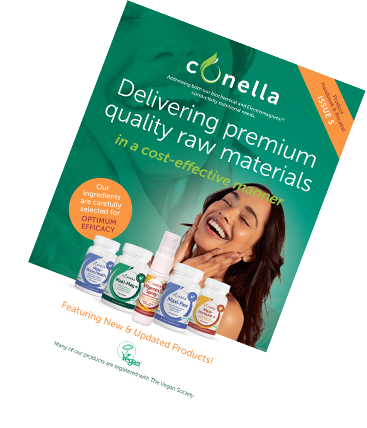Vitamins essential for good health are widely discussed, and you will see plenty of information on Vitamins A, B, C and D. However, nutritional classifications extend further into the alphabet, and include highly beneficial Vitamin K.
This article looks especially at Vitamin K2, as recent research provides new reasons to include it in your diet or supplements. Including its potential to improve your overall health and longevity.
Keep in mind too K2’s role in cardiovascular health is already well established.
As heart disease and strokes are believed to still be the biggest killer worldwide – even compared to COVID-19 – anything that potentially reduces deaths is vital.
Could Vit K2 offer wider health protection too?
Dr Katarzyna Maresz, who is President of the International Science and Health Foundation, has been quoted saying: “It has come to light that vitamin K2 - specifically as menaquinone-7 (MK-7) - is emerging as a vitamin that contributes significantly to whole-body health, promoting the increased ability to age in a healthy way.”
Before looking at this in more detail, a quick reminder of ‘What is vitamin K?
Facts about Vitamin K
Vitamin K is a fat-soluble nutrient, present in the fats we eat and stored in our fatty tissue and liver.
There are two types.
Vitamin K1 (also called phylloquinone) is absorbed from some plant oils and leafy green vegetables for example.
Vitamin K2 (menaquinone) is found in dairy and animal products, and fermented foods.
Interesting, our body produces its own form of vitamin K, and we store some in our liver for future use. However, we must ensure we regularly eat foods containing vitamin K.
Not least as both types are important for blood clotting and tissue injury response. This is due to the role this nutrient plays in breaking down calcium and preventing hard deposits. Clearly, anything that supports smooth, uninterrupted blood flow is important to heart health too.
Also, the interplay between Vit K and calcium has already made it a consideration in good bone health.
The recommended daily intake (RDI) of vitamin K is 1 microgram per kilo of body weight. There is no current guidance on how much K2 you need.
Insights on vitamin K2
Though both K1 and K2 share chemical markers and advantages, they are distinct in the way they work.
Vit K2 can be further broken down into various nutritional classifications. This is most usually MK-4 (menaquinone-4) and MK-7 (menaquinone-7).
The way they support body functions is complex, but one of their key roles is to boost the number of active proteins in circulation. Our physiological systems then rely on these proteins.
You can see how this works. Too little K2 means fewer proteins, less access to calcium, and more hard particles in our blood. All adding up to a general health deficit.
On the other hand, sufficient Vitamin K supports the availability of important proteins, including the ones that affect immune function and inflammatory responses.
K2’s health benefits; recent research
There is ample evidence - from observation and intervention studies - that vitamin K2 provides these wide-ranging health advantages.
However, the latest thinking is that its value is even more ‘body-wide’. Elevating vitamin K even higher in the ‘league table’ of essential vitamins.
Below, is a list of some of the specific health areas Vitamin K2 is believed to support.
Bone density
For many years the value of Vitamin K for blood clotting efficiency was its only known attribute. Its importance in bone metabolism is a more recent discovery.
The fact that Vit K helps increase protein circulation and access to calcium was mentioned above. However, studies have evaluated the link between Vitamin K, bone mineral density and something called uncarboxylated osteocalcin (ucOC).
Osteocalcin is an important element of bone structure and a vitamin K-dependent protein. Too little and bones tend to be more easily fractured.
This backs up the work of other medical scientists who believe that calcium and vitamin D3 are effective in maintaining bone density and reducing bone fracture. Combined with Vit K, they are vital clues to improved bone health.
It’s not surprising then, that Osteoporosis International is showing a keen interest in the advantages of prescribing Vitamin K2 (MK-7) as a nutritional aid.
Also, there is evidence to suggest children who eat foods rich in K2 will enjoy better bone health.
K2 and cardiovascular health
Interest in ways vitamin K supports heart health and blood circulation is focusing on reducing cardiovascular risks by taking K2 (MK-7) supplements.
It has been discovered that K2 (MK-7) can inhibit the stiffening artery walls that comes with age. This nutrient also plays a significant role in improving vascular elasticity.
Can Vitamin K2 help prevent or slow Alzheimer’s Disease
The relevance of Vit K2 in protecting our cognitive abilities – and avoiding the risk of dementia is - something we covered in a previous article.
It's an urgent area of clinical research to reduce the global impact of Alzheimer’s Disease.
Visual health and Vitamin K2
How can Vit K improve eye health? Its role in preventing arterial stiffening means it also combats issues with retinal arteriolar health.
Also, more work is needed to investigate the way this nutrient supports retinal microcirculation – the system that gets oxygen around the human eye.
Can Vit K help diabetics?
One of the worst complications of diabetes is Peripheral Neuropathy. This is damage to nerves in the body's extremities, that can result in the need for amputation in severe cases.
Work is underway to confirm whether vitamin K2 can support and strengthen components in the nervous system, reducing the risk of Peripheral Neuropathy.
Could there be even more to discover about K2?
This article sums up just some of the scientific interest in using vitamin K2 supplements to improve overall health and longevity. There is even work underway to explore the role it plays in COVID-19 and the proteins that keep our body functioning well. The research done to date does suggest “a link between vitamin K deficiency and disease severity” according to Dr Katarzyna Maresz, president of the International Science and Health Foundation.
It's important to emphasise that taking too much of any nutrient can have harmful side effects, and it is often its absence that causes health issues.
Therefore, our naturopathic advice on vitamin K2 is to make sure you include it in your diet, but not to treat it as a ‘cure all’ or quick fix.
Keep checking our nutritional news for more research updates on better health from better food choices.
Additional sources:
https://www.webmd.com/diet/foods-high-in-vitamin-k2#1
https://www.nhs.uk/conditions/vitamins-and-minerals/vitamin-k/#:~:text=How%20much%20vitamin%20K%20do,need%2075%20micrograms%20a%20day.
https://www.ncbi.nlm.nih.gov/pmc/articles/PMC2908786/
https://link.springer.com/chapter/10.1007/978-3-030-16073-9_4#:~:text=Vitamin%20K%20can%20act%20as,and%20some%20types%20of%20cancer.










